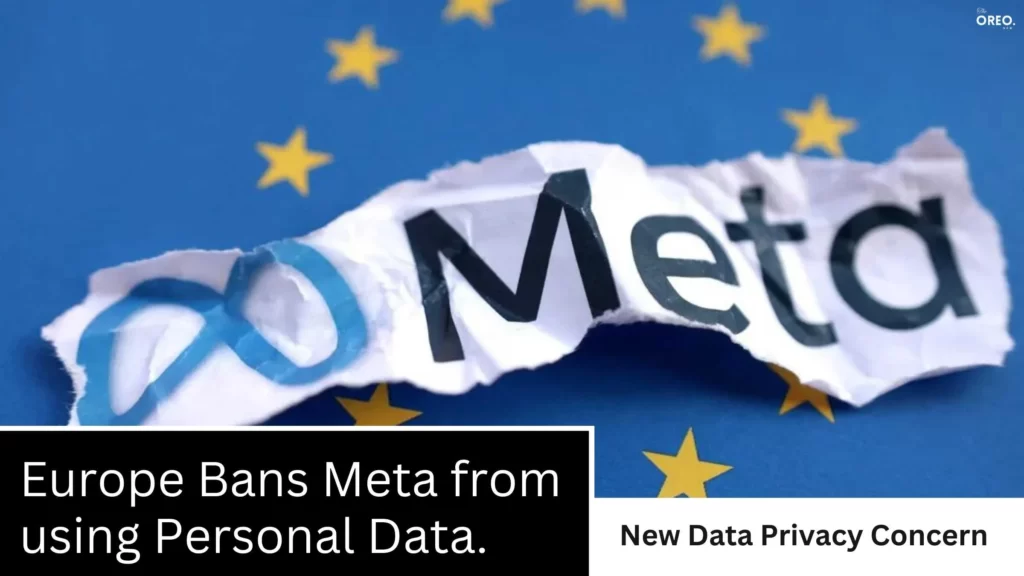Europe To Ban Meta from Using Personal Data for Ads | New Data Privacy Concern

The European Data Protection Board (EDPB) has issued a binding decision banning Meta from using personal data to target ads in the European Economic Area (EEA). Datatilsynet, Norway’s Data Protection Authority, previously imposed a ban on Meta’s use of personal data for targeted ads. The decision of Europe to ban Meta is a result of Datatilsynet‘s request.
On November 1, 2023, EDPB issued an order asking Meta to discontinue using personal data of users. The General Data Protection Regulation (GDPR) has ruled that Meta’s use of a contract and legitimate interest as justifications for processing personal data for targeted advertising is invalid. According to the GDPR, businesses must gain users’ express agreement before using their personal information for specific purposes, such as targeted advertising.
How did Meta respond to the Decision?
Meta has said that it will go along with the ruling of the EDPB. However, it has also expressed its disappointment with the choice and its belief that it was “unwarranted” and “illegal.” Right now, users in the EU and EEA have the option to agree to targeted advertising from Meta. But, considering the privacy issues brought up by the EDPB’s ruling, it is uncertain how many users will opt to consent.
Since much of Meta’s revenue comes from targeted advertising, the ruling represents a serious setback for the company. The amount of money the corporation will lose because of the restriction has not been made public yet. Some analysts are predicting that Meta may lose billions of dollars annually as a result of the restriction.
The EDPB’s decision in Europe to ban Meta is due to the following findings:
- Meta’s reliance on contract and legitimate interest as legal bases for processing personal data for targeted advertising is not valid under the GDPR.
- Meta failed to comply with orders issued by the EDPB in December 2022 requiring it to provide users with more transparency and control over their personal data.
Meta has to abide by the EDPB’s ruling within the next two weeks since it is legally required. If it doesn’t follow the rules, Meta can be fined up to 4% of its yearly global revenue. The ruling by the EDPB is also a major win for privacy advocates. The advocates have repeatedly argued that targeted advertising is unfair and invasive. Other businesses could have to abide by the precedent that this ruling creates.
Implications of Europe to Ban Meta
- Reduced revenue
- Changes to advertising practices
- Increased privacy for users
Impact on the advertising industry
- Other companies may have to follow too.
- Increased focus on privacy-friendly advertising.
- Reduced effectiveness of advertising campaigns.
It’s still too early to tell what the EDPB’s ruling will result in the long run. Still, it is obvious that the ruling is an important step for European privacy laws. It may have a significant impact on the advertising sector as a whole.
Overall, the decision of Europe to ban Meta could have a major impact on the company, its users, and the advertising industry. Let’s see how Meta and other companies will adapt to the ban and how consumers will respond to the changes. Stay connected with Oreonow.
Related Posts

Musk vs OpenAI: Elon Musk Files a Lawsuit against OpenAI and Sam Altman! Why?

X’s Audio and Video Calls – Communicate Better with X

